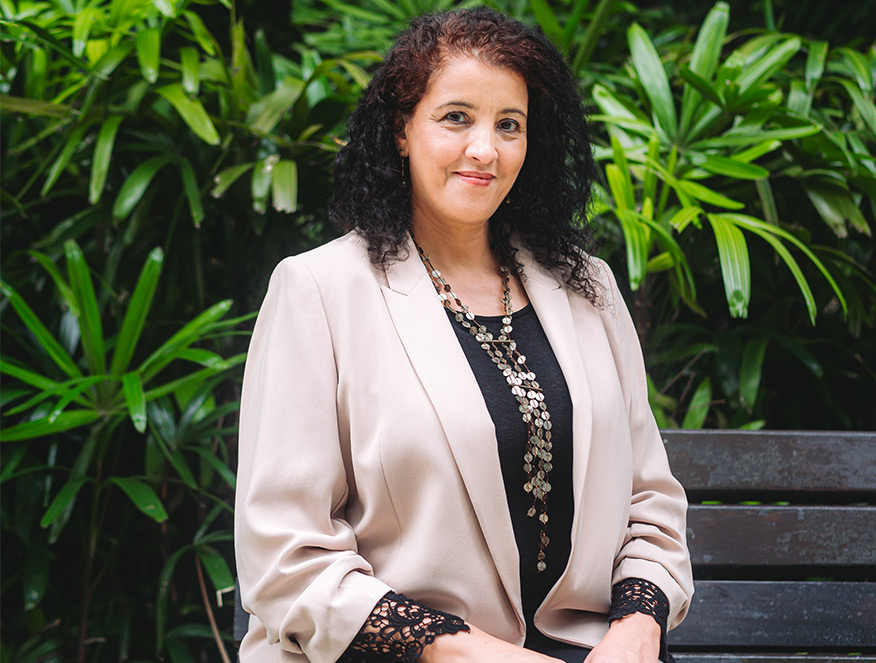
Divorce proceedings can be messy. Let us help you through this grueling process.
What is mediation counselling?
Divorce is a challenging and emotional experience, often accompanied by conflicting interests and strong feelings.
At Incontact, Sanaa Lundgren, a Collaborative Family Practitioner and Mediator on the panel of the Singapore Mediation Centre, works alongside lawyers and other professionals to facilitate a more structured and productive environment for discussions. Sanaa helps establish clear boundaries, manage expectations, and guide the division of assets, all while prioritising the well-being of children (if any).
Our goal is to ease the divorce process, offering both emotional support and practical guidance.
Issues addressed in Mediation Counselling
- Divorce
- Child custody
- Parenting plans
- Co-parenting challenges
- Asset division
- Alimony and financial support
- Communication challenges
- Domestic violence
- Estate disputes
- Inheritance disputes
Mediation Counselling at Incontact
Counselling techniques
Sanaa integrates counselling techniques to address strong emotions that may arise during discussions. This approach helps individuals process their feelings in a healthy, constructive manner, reducing tension and promoting emotional clarity.
Mediation process
Using mediation, Sanaa creates a neutral, structured environment for both parties to voice their concerns and explore solutions. This ensures that each party’s interests are heard, fostering collaboration rather than conflict.
Safe and supportive space
By establishing a safe and supportive space, Sanaa ensures that both parties feel heard and respected throughout the mediation process, reducing stress and facilitating productive conversations.
Avoiding court orders
Sanaa works to guide both parties toward a mutually beneficial agreement, helping them avoid the need for formal court orders. This collaborative approach allows for more flexible, personalized outcomes that suit both parties’ needs.

Our mediator
Sanaa Lundgren is an accredited mediator with the Singapore Mediation Centre (SMC) and is extensively trained in conflict resolution and mediation. In addition, she is skilled in a variety of therapeutic approaches, including CBT, TA, Schema Therapy, DBT, Gottman Method, Re-decision Therapy, and SFBT, among others. Sanaa takes an eclectic approach, combining these therapies with elements of NLP and life coaching to tailor her methods to best support her clients.
FAQ
Mediation counselling is a process that combines both mediation and therapeutic techniques to help individuals and couples navigate conflicts, particularly in family and divorce matters, in a safe and structured environment. It focuses on resolving issues amicably without resorting to court intervention.
While traditional therapy focuses on emotional healing and personal growth, mediation counselling is goal-oriented, aiming to resolve specific conflicts and reach mutually beneficial agreements, particularly in family and relationship disputes.
Mediation counselling is ideal for individuals, couples, or families dealing with issues such as divorce, child custody, asset division, co-parenting challenges, and communication breakdowns.
Mediation counselling can address issues such as divorce, child custody, asset division, alimony, financial disputes, co-parenting, relationship conflicts, and pre-nuptial agreements, among others.
Mediation counselling involves both parties working with a trained mediator to openly discuss their concerns and reach a resolution. The mediator facilitates productive dialogue, helping individuals understand each other’s perspectives and create fair, customised solutions.
While the mediator helps facilitate the discussion, any agreements made during mediation are not automatically legally binding. However, they can be formalised into a legal agreement with the assistance of a lawyer.
Yes, mediation is a highly effective tool during divorce or separation, helping couples navigate the emotional and logistical complexities, including asset division, child custody, and financial support, in a less adversarial manner.
Yes, everything discussed during mediation is kept confidential, unless required by law. This confidentiality helps create an open and honest environment where both parties can freely express their concerns and work towards a resolution.
The duration of mediation counselling depends on the complexity of the issues being addressed. It typically involves several sessions, but the process is often faster than traditional legal proceedings.
If mediation does not lead to a resolution, the mediator will help clarify the issues that remain unresolved. At this point, the parties may choose to pursue legal action or further professional support to reach a solution.











